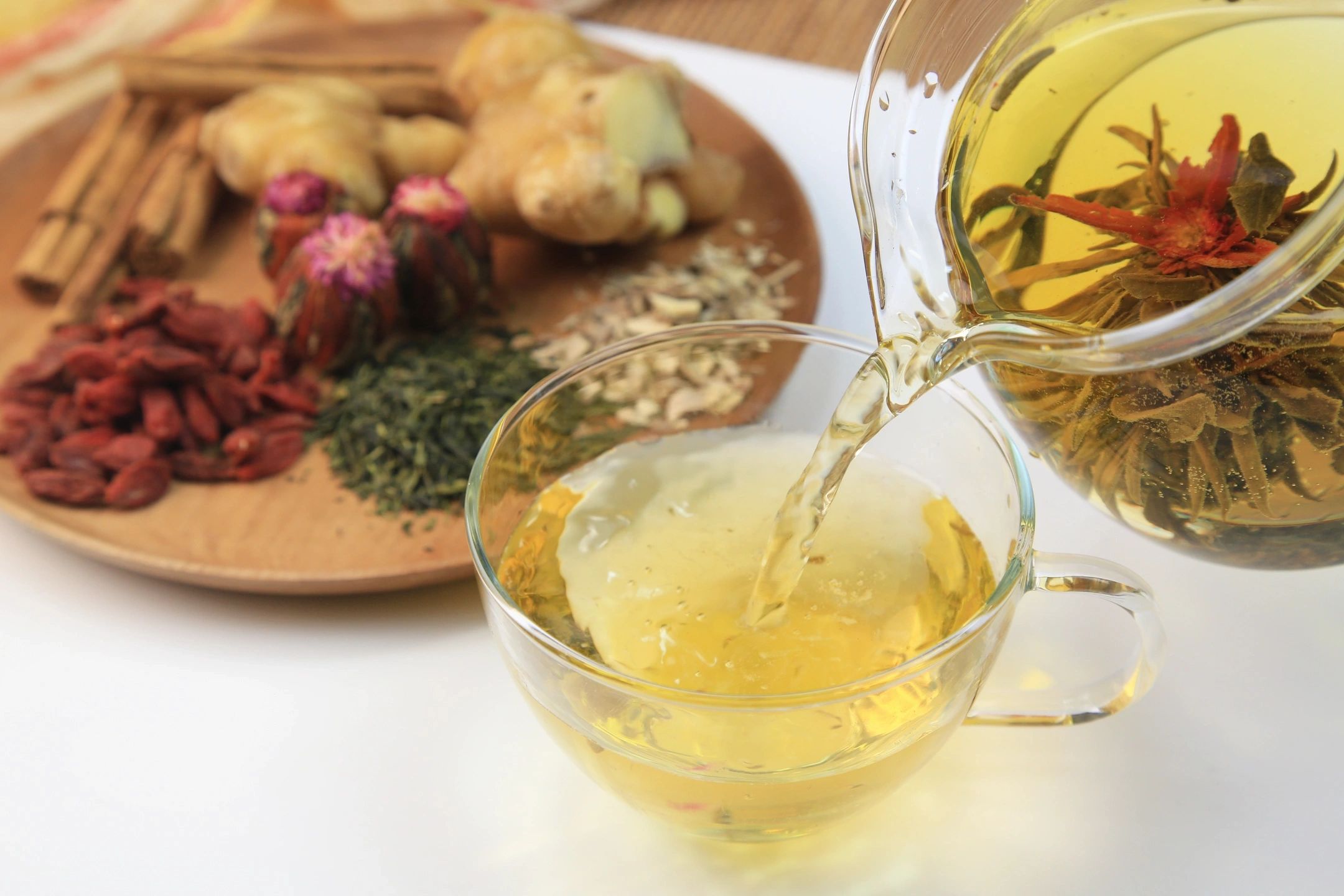The Greatness of Green Tea!!!

The Greatness of Green Tea!!!
Dr. Claire Arcidiacono, ND
Green tea is everywhere these days! Green tea is found in everything from tea bags to lattes and even ice cream! But as we all know these forms are chock full of sugar and additives that aren’t exactly very good for us. So what forms of green tea do we recommend? Green tea is available in tea form, tincture form and even in capsules. Personally I recommend choosing either a tincture or capsule form since they tend to be more concentrated in that form.
Green tea has been studied and been found to have many health benefits. Green tea has been found to help strengthen the immune system. Green tea has also been found to inhibit the growth of Helicobacter pylori. Additionally green tea has been found to be effective when used to treat influenza, Herpes and adenovirus. Green tea has also been found to be effective in treating diarrhea. (1) In addition to helping against different viral infections green tea has also been found to be antifungal and is effective against Candida albicans. (2)
One topic that people frequently call with questions is regarding the topic of how to increase their White blood cell count or their immune system. Studies have found that when green tea is used for 14 or more days it can increase the white blood cell count. In one study they were particularly looking at leukocytes and found that they increased after 14 days of green tea use. (3) Other studies have found that green tea can help to increase natural killer cells and macrophages both of which are important parts of the immune system. (4)
Green tea does much more than just help our immune system fight infections – in fact studies have found that the EGCG that is found in green tea can inhibit the release of both histamine and leukotrienes. Both of these are important when it comes to both allergies and asthma. Studies have found that green tea is able to help with inflammation and can help to reduce pro-inflammatory cytokines. (5)
In addition to being antibacterial studies have also found that green tea can enhance the activity of certain antibiotics thus making them more affective. For example studies have found that green tea can enhance the effects of tetracycline in its use against staphylococci. (6)
Green tea does even more than help us fight against pathogens or bad guys! A 2017 study found that green tea may help improve overall brain health, memory and even improve our mood. (7) A more recent study from 2020 found that those who used green tea had a 64% lower chance of cognitive impairment. (8)
Green tea has also been found to help metabolism and to help with our cholesterol. (9) In fact a 2022 study found that green tea use was associated with a 44% lower chance of abdominal obesity. (10) An interesting study from 2021 found that those who use green tea had a 62% lower risk of death. (11)
Overall green tea has many benefits. But how do you know which one to take? Invite has 2 forms of green tea, tincture or concentrated liquid form and capsules. To help decide which one is best for you there are some questions that can be helpful. The first question is do you prefer liquids or capsules? Are you sensitive to caffeine? What are your overall goals? Are you on any medications? Invite green tea tincture is a liquid and decaffeinated. That makes it a great choice for anyone who prefers liquids or who would prefer to eliminate caffeine. For anyone who is still confused I just want you to remind you that you can always talk to an Invite nutritionist to help find the right products to reach your goals!
Our next topic will be Bronchitis!
Sources:
- https://www.ncbi.nlm.nih.gov/pmc/articles/PMC2855614/
- https://pubmed.ncbi.nlm.nih.gov/14688042/
- https://pubmed.ncbi.nlm.nih.gov/26259232/
- https://www.sciencedirect.com/science/article/pii/S2213453022000465
- https://bjbas.springeropen.com/articles/10.1186/s43088-024-00464-2
- https://pubmed.ncbi.nlm.nih.gov/15155186/
- https://pubmed.ncbi.nlm.nih.gov/28899506/
- https://www.ncbi.nlm.nih.gov/pmc/articles/PMC7640442/
- https://link.springer.com/article/10.1007/s11332-022-00955-8
- https://link.springer.com/article/10.1007/s11332-022-00955-8
- https://www.ncbi.nlm.nih.gov/pmc/articles/PMC7903984/
